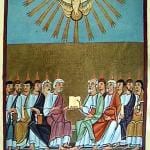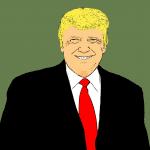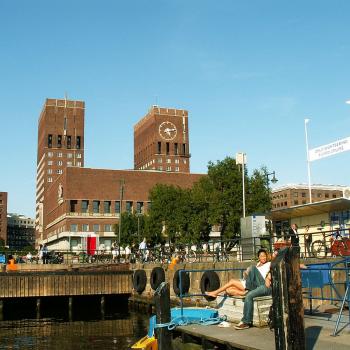Both Troutner and Fr. Waldstein might find this exciting: finally the irreligious are admitting that “secularism” is a moral position, an insidious arm of Liberal governance that has always wanted to weaken religion and illiberalism! It makes sense to me that we would see this turn now. Many refugees are Muslim. Many migrants from Central America are devoutly Christian. Intersectional theory has asked us to take more seriously the variety of identities people carry around. Academics on the Left wish to stand up for the downtrodden and doing so means refusing to simply deny their being religious.
Moreover, these theorists want to ask how it is that Liberalism’s arising in the Christian West has made it ask the wrong questions about religion, rooted in one specific, historical version of one specific, historical religion:
When Formations of the Secular approaches the intersection of secularism (conceived as a modern pattern of organizing public life) with religion (conceived as part of an older tradition), it draws attention to the ways in which a historically specific concept of “the secular” places religions in a hierarchical order. It brings to light, in other words, how some kinds of religion are determined to be compatible with liberal, democratic modernity, while others are not. To quote, “when it is proposed that religion can play a positive ethical role in modern society, it is not intended that this apply to any religion whatever, but only to those religions that are able and willing to enter the public sphere for the purpose of rational debate with opponents who are to be persuaded rather than coerced.” The question here is not as much, “How is secularism connected to Christianity?” but more, “How does secularism’s connection with modern Christianity shape its interactions with other religious traditions?” (“Landmarks in the Critical Study of Secularism”)
I’m not sure the circle can be squared here: there are illiberal elements in Western monotheisms. Liberalization has often come at the cost of dogma; this seems to be a historical fact to me. The precise question is how we might preserve the lessons of Liberalism without sacrificing faith thick with content. No one seems to know the answer: Troutner, Fr. Waldstein, or genealogists of secularism. Thus, this is the question we must keep asking; in it may also be found the future off of our politics and institutions.
So, it seems that even non-religious scholars see the same sorts of problems as Troutner and Fr. Waldstein, even if from a different perspective. All can agree that something new is looking to be born.
This places a great task before us: the future of Liberalism is, in a sense, the future of religion. Will we simply try to “go back”? Will we tether ourselves to this dry proceduralism? Will we try and imagine some synthetic Post-Liberalism, built from spare parts of Gospel papyri and PDFs of works by Talal Asad?
I cannot say. In fact, this post has probably raised far more questions than it has answered. The goal, however, has been to get us thinking about the right questions; it has been to focus us such that we might understand that the future is not necessarily about this or that issue obsessing this or that media outlet, but about the big, theoretical queries that unfold themselves through policies, protests, revolutions, and Sunday homilies. If I have helped in that, I thank God.













